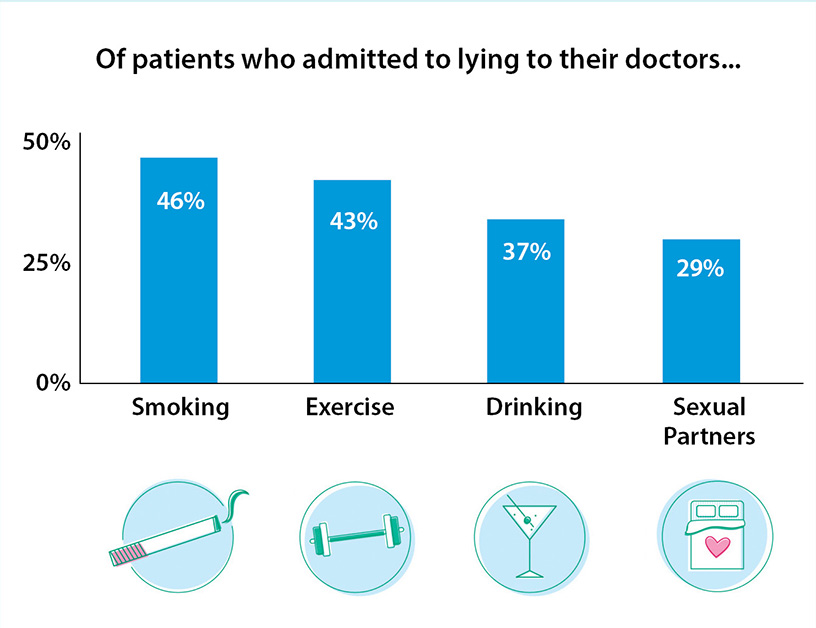What patients lie to their doctors about, and why
Doctors know that patients are not always fully truthful with them, but just how much do patients lie, and about what? A recent Pollfish survey found that 43% of those who admitted to lying say they lie about their exercise habits; the only thing that more people admitted to lying about was smoking (46%). Patients 35 and older were more likely to lie about their exercise habits than younger patients, while those under 35 were more likely to lie about smoking.
More men lied to doctors about alcohol consumption than women (50% men vs. 32% women), while women were more likely to lie about sexual partners (33% women vs. 21% men).
Why are patients lying?
- 75% of respondents cited embarrassment.
- 31% lie to avoid discrimination.
- 22% lie because they don’t think their doctor will take them seriously if they tell the truth.
Of those who admitted to lying to their physician, the group that lied to avoid discrimination was overwhelmingly female (80% female, 20% male).
On the bright side, in general most people (77% of those surveyed) are honest with their doctor, and 34% said they were comfortable talking with their doctor about anything.
The survey was conducted for insurance aggregator TermLife2Go, and had 500 respondents from throughout the US. More results are available at https://termlife2go.com/lying-to-your-doctor.


